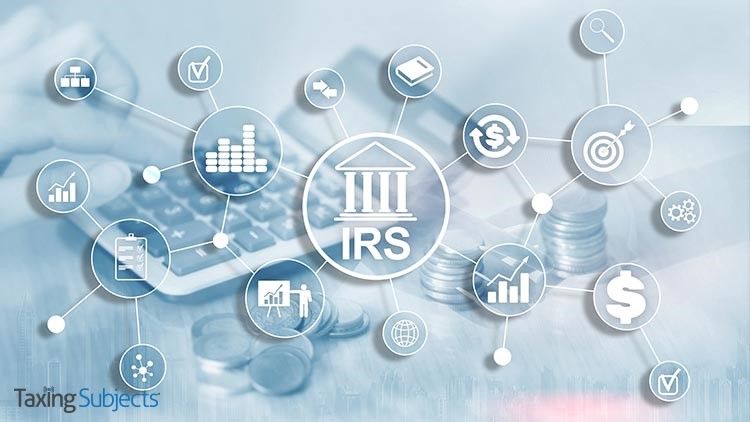
by | Mar 31, 2020 | Tax Tips and News
COVID-19 has disrupted life for Americans across the country, and as we’ve seen in recent weeks, the tax industry is not immune to change. To limit the number of physical documents handled by IRS employees, the IRS announced that it has adjusted its policy regarding tax signatures for this unprecedented filing season.
“We are implementing a temporary deviation that allows IRS employees to accept images of signatures (scanned or photographed) and digital signatures on documents related to the determination or collection of tax liability,” the IRS explained in the memorandum to tax industry partners. “We are also implementing a temporary deviation that allows IRS employees to accept documents via email and to transmit documents to taxpayers using SecureZip or other established secured messaging systems, [like e-Fax].”
Prior to publishing the memo, the IRS typically accepted electronic signatures for a variety of tax forms—the most notable and common being the Form 1040. This announcement specifically pertains to documents that typically require a physically printed and signed form:
- Extensions of statute of limitations on assessment or collection
- Waivers of statutory notices of deficiency and consents to assessment
- Agreements to specific tax matters or tax liabilities (closing agreements)
- Case specific Power of Attorney
The IRS noted that tax professionals and taxpayers who need to confirm whether a specific form will be accepted digitally should contact the Business Operating Division. Those who need to submit a signed tax document to the IRS via email will need to use one of the approved file types outlined in the memo: .tiff, .jpg (.jpeg), .pdf, and .zip. The IRS also said encrypted files and files created by Microsoft Office Suite will be accepted.
While this is the latest COVID-19 motivated change in IRS protocols, it might not be the last. Remember to check Taxing Subjects regularly for future tax industry updates.
Source: IRS Memorandum
– Story provided by TaxingSubjects.com

by | Mar 31, 2020 | Tax Tips and News
Distribution of the federal government’s economic impact payments, meant to counter the economic effects of the coronavirus pandemic in the U.S., is scheduled to start in the coming weeks, according to the U.S. Treasury Department. No action is required on the part of most taxpayers.
However, some seniors and others who normally don’t file a return will need to submit a simple tax return to receive a stimulus payment.
There are a few things the Treasury Department and the IRS want taxpayers to know about the payments and the process to distribute them.
Who is Eligible?
Taxpayers with adjusted gross income (AGI) of up to $75,000 for individuals and $150,000 for married couples filing jointly will get the full amount. Above the stated limits, the payment is reduced by $5 for each $100 above the $75,000 or $150,000 thresholds.
Single filers with income above $99,000 and joint filers making more than $198,000 with no children are not eligible.
Eligible taxpayers who filed tax returns for 2019 or 2018 will automatically receive a payment of up to $1,200 for individuals or $2,400 for married couples. Parents will also get $500 for each qualifying child.
How Will the IRS Know Where to Send It?
The IRS says the “vast majority” of taxpayers don’t have to take any action. The IRS will automatically calculate and send the payments to eligible taxpayers.
For those who’ve already filed their 2019 tax returns, the IRS will use this most recent information to figure the payment amount. If taxpayers have not yet file their return for 2019, their 2018 tax return will be used to calculate the payment.
The economic impact payment will be deposited directly into the same banking account used on the return that was filed.
If the IRS Doesn’t Have Your Direct Deposit Information
Treasury plans to develop a web-based portal for individuals to provide their banking information to the IRS online, so that taxpayers can get payments immediately, as opposed to waiting for a check in the mail.
Not Required to File a Tax Return?
People who typically don’t file a tax return will need to file a simple return to receive an economic impact payment. Low-income taxpayers, senior citizens, Social Security recipients, some veterans and taxpayers with disabilities who are otherwise not required to file will not owe tax.
How to File the Necessary Return
The IRS will soon provide instructions on IRS.gov/coronavirus on how to file a 2019 tax return with simple—but necessary—information, including their filing status, number of dependents and direct deposit bank account information.
Didn’t File in 2018 or 2019?
You can still receive a payment. The IRS urges anyone with a tax-filing obligation who hasn’t yet filed a return for 2018 or 2019 to do so as soon as they can in order to receive a stimulus payment. Taxpayers should include direct deposit banking information on the return.
How Long are the Payments Available?
For those concerned about visiting a tax professional or otherwise getting help to file with a tax return, the economic impact payments will be available throughout the rest of 2020.
Need More Information?
The IRS will post all key information on IRS.gov/coronavirus as soon as it becomes available.
Keep in mind, the IRS has a reduced staff in many of its offices but remains committed to helping eligible taxpayers receive their payments in a quick and efficient manner. Check for updated information on IRS.gov/coronavirus instead of calling the IRS help line, where operators are trying to help taxpayers file their 2019 returns.
– Story provided by TaxingSubjects.com

by | Mar 30, 2020 | Tax Tips and News
As taxpayers face multiple challenges posed by the COVID-19 outbreak, the IRS has unveiled a large series of steps providing relief on a number of fronts, ranging from easing payment guidelines to postponing compliance actions.
“The IRS is taking extraordinary steps to help the people of our country,” said IRS Commissioner Chuck Rettig. “In addition to extending tax deadlines and working on new legislation, the IRS is pursuing unprecedented actions to ease the burden on people facing tax issues. During this difficult time, we want people working together, focused on their well-being, helping each other and others less fortunate.”
Retting said the People First Initiative provides immediate relief to help people facing uncertainty over taxes. “We are temporarily adjusting our processes to help people and businesses during these uncertain times. We are facing this together, and we want to be part of the solution to improve the lives of all people in our country,” the commissioner added.
People First includes changes on issues ranging from postponing installment agreement-related payments and offers in compromise to collection and limiting certain enforcement actions.
The initiative projects a starting date of April 1 and initially runs through July 15. During this time the IRS will avoid in-person contacts as much as possible to limit the spread of the virus.
While specifics of the initiative are still being nailed down, an IRS release had some details about some of the programs affected by this new move:
Existing Installment Agreements
For taxpayers under an existing Installment Agreement, payments due between April 1 and July 15, 2020 are suspended. Taxpayers who are currently unable to comply with the terms of an Installment Payment Agreement, including a Direct Deposit Installment Agreement, may suspend payments during this period if they prefer. Furthermore, the IRS will not default any Installment Agreements during this time. By law, however, interest will continue to accrue on any unpaid balances.
New Installment Agreements
The IRS reminds people unable to fully pay their federal taxes that they can resolve outstanding liabilities by entering into a monthly payment agreement with the IRS. See IRS.gov for further information.
Offers in Compromise (OIC)
The IRS is taking several steps to assist taxpayers in various stages of the OIC process:
- Pending OIC applications – The IRS will allow taxpayers until July 15 to provide requested additional information to support a pending OIC. In addition, the IRS will not close any pending OIC request before July 15, 2020, without the taxpayer’s consent.
- OIC Payments – Taxpayers have the option of suspending all payments on accepted OICs until July 15, 2020, although by law interest will continue to accrue on any unpaid balances.
- Delinquent Return Filings – The IRS will not default an OIC for those taxpayers who are delinquent in filing their tax return for tax year 2018. However, taxpayers should file any delinquent 2018 return (and their 2019 return) on or before July 15, 2020.
Non-Filers Need to Get Current
Those who have not filed their tax returns for years before 2019 should file their delinquent returns. More than a million households haven’t filed during the last three years, yet are owed refunds. They still have time to claim those refunds.
The IRS recommends contacting a tax pro to tap into the options available for these late filers. Time, however, is limited by law. The IRS says once delinquent returns have been filed, taxpayers with tax liabilities should resolve any outstanding tax due and take advantage of the IRS’ Installment Agreement or an Offer in Compromise to get a “Fresh Start.” Check IRS.gov for details.
Other areas included in the IRS People First Initiative include modifications to field collection activities and automatic liens.
Liens and levies (including any seizures of a personal residence) initiated by field revenue officers will be suspended during the initiative. However, field revenue officers will continue to pursue high-income non-filers and perform other similar activities where warranted.
New automatic, systemic liens and levies will be suspended while the initiative is in place.
Passport certifications are also covered. IRS will suspend new certifications to the Department of State for taxpayers who are “seriously delinquent” during this period. These taxpayers are encouraged to submit a request for an Installment Agreement or, if applicable, an OIC during this period. Certification prevents taxpayers from receiving or renewing passports.
Debt collection efforts by private contractors will be on hold during the period. The IRS says it will generally not start new field, office or correspondence examinations during the period. They will continue to work refund claims where possible without face-to-face contact. Some new examinations, however, may be started where the statute of limitations is a factor.
For a full listing of the proposed actions during the initiative period, see the IRS People First Initiative release on the IRS website.
– Story provided by TaxingSubjects.com

by | Mar 29, 2020 | Tax Tips and News
Do not respond to phone calls or emails asking for information or payments to process your stimulus check!
The ink hasn’t dried on the $2 trillion Coronavirus Aid, Relief, and Economic Security (CARES) Act passed by Congress this week, but the tax industry is reporting that scammers are already trying to take advantage of taxpayers. Their goal is to capitalize on millions of taxpayers anticipating stimulus money by deploying phone- and email-based phishing scams.
Apparently, scammers posing as IRS representatives are calling and emailing taxpayers to request personally identifiable information or fees that they say are required to qualify for the upcoming stimulus payments. In some cases, the ploy suggests the money is available now, which is not the case. As with other phishing scams, fraudsters intend to use that information to make a quick buck.
The tax industry wants to remind everyone that government representatives will not contact taxpayers seeking information or payments as part of the stimulus payment program. In fact, the only communication planned at this time, according to the CARES Act, is a confirmation letter that will be mailed to taxpayers after the stimulus payments have been distributed.
The CARES Act specifies that the IRS will send letters to taxpayers within 15 days of payments being issued. The letters outline three things:
- How the IRS issued payment
- How much the IRS paid
- How to contact the IRS if payment wasn’t received
Until we learn the details of the IRS’s process for sending stimulus payments, taxpayers should be on high alert for stimulus-related scams.
Those who are targeted by the stimulus scam should report the incident to the Federal Trade Commission as soon as possible. One of the keys to combatting phishing scams is simply knowing that they exist in the first place.
– Story provided by TaxingSubjects.com

by | Mar 27, 2020 | Tax Tips and News
Phone Support for Practitioner Priority Service, e-Services Help Desk, and e-Services FIRE and AIR are temporarily down.
Businesses across the country are grappling with the challenges of limiting social contact, and the Internal Revenue Service is no exception. Presumably taking precautionary measures to limit the spread of COVID-19 at IRS locations, the agency today announced via the Quick Alerts for Tax Professionals newsletter that they were temporarily suspending phone support for certain preparer-related services and processing of Income Verification Services (IVES) requests.
Three tax professional-specific support programs are affected by this closure: “Due to staff limitations, Practitioner Priority Service line, the e-Services Help Desk line, and the e-Services FIRE and AIR system help desks are closed until further notice.” While phone support will be unavailable, the IRS said that preparers could use IRS.gov as an online reference resource.
In addition to not accepting new IVES requests, the IRS said they were “experiencing delays with existing IVES processing as well as CAF number authorizations.” While tax professionals will be unable to use IVES to get transcript information during this time, the IRS suggested an alternative: “Practitioners with e-Services accounts and with client authorization can access the Transcript Delivery System to obtain prior-year transcripts.”
The IRS ended the newsletter by noting they are currently not able to provide information or guidance on the $2 trillion COVID-19 stimulus bill.
Source: 3/27 Update on IRS Services
– Story provided by TaxingSubjects.com






